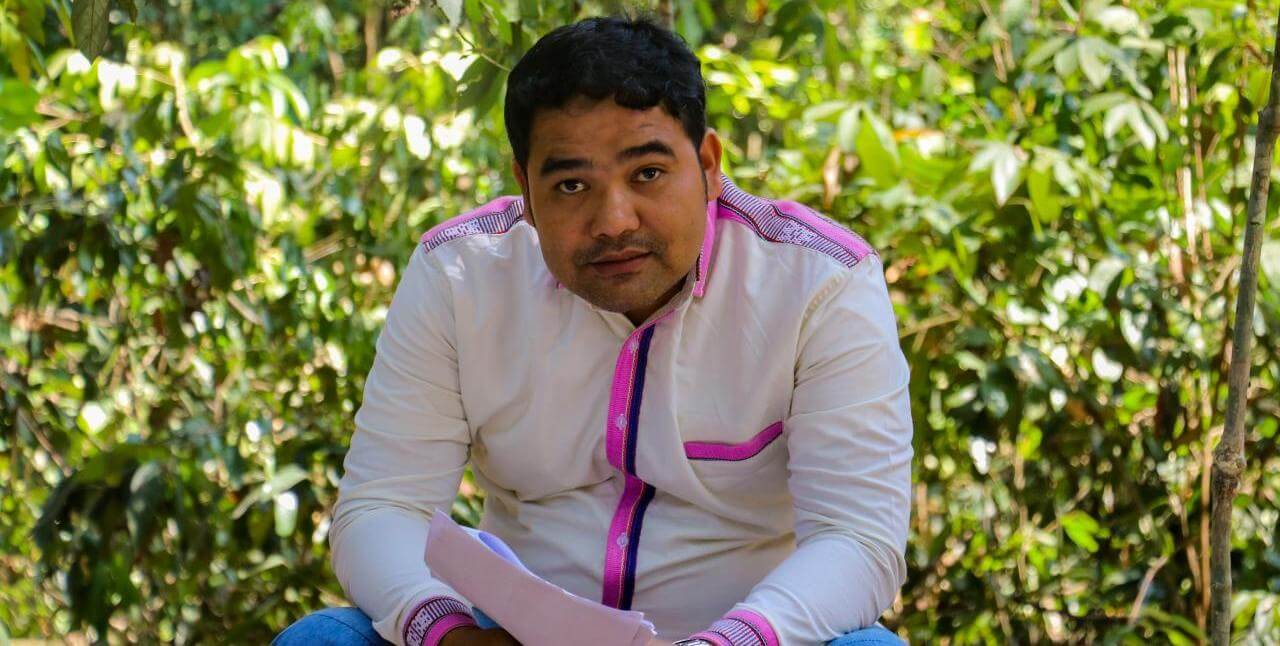
Grantee Spotlight: Sokunthea Nun
8 Questions with a Champion of Cambodian Indigenous People’s Rights
24 January 2021
CEPF has worked with 2,500 grantees (and counting!) from around the world since 2001. And behind each organization are dedicated people with diverse backgrounds, interests and stories.
We’re launching this new, monthly blog series, so you can meet some of these incredible conservationists. We know you’ll find them as inspiring as we do.
Since 2019, Sokunthea Nun has served as president of the Cambodia Indigenous Youth Association (CIYA). The association assists Indigenous young people in pursuing higher education and provides a strong network for them to protect and secure their land and natural resources as well as maintain their customs, beliefs and languages. Sokunthea himself is a member of the Kreung Indigenous community in Ratanakiri in the northeast of Cambodia.
Briefly describe what you do.
I manage the running of CIYA. I am responsible for connecting and communicating to partners like donors, communities, government agencies and especially the members of the association.
When you were a child, what did you want to “be” when you grew up?
always dreamed that I would become a leader so that I could help poor people. I come from a very poor family and also the most marginalized group in [Cambodian] society. I wanted to become a government leader but, unfortunately, because of the government system, it was not that easy since I come from a very poor background. But that could not stop me!
Before becoming the leader of CIYA, I spent almost 10 years [in higher education] learning how to manage and lead an institution. Being elected as president of CIYA fulfilled my goal, so I’m happy for that.
What is your favorite place in nature to visit and why?
Yeak Laom Lake in Ratanakiri Province. The water is surrounded by forest, and there’s the sound of birds. There’s fresh air, and it’s relaxing to be by the lake.
What is your favorite species and why?
I like parrots. The bird can speak the human language even though it’s a bird. I, too, speak other languages. I speak English and Khmer, and I speak four Indigenous languages.
The parrot can also fly. They are free and can go anywhere. I studied English when I was in university because I wanted to travel around the world. I’ve traveled to more than 10 countries, including twice to the U.S.
In Montana for a fellowship, I learned about the Indigenous tribal people. They have their own tribal government. They own their resources, they own their forests, they also own their animals. They even have their own traditional school. It was the best place in the world for Indigenous people that I have ever seen.
During a summit in Laos, I met President Barack Obama and shook his hand. My first time shaking the hand of a world leader. It encouraged my work as an organizer because President Obama used to be a community organizer as well.
What do you consider your biggest achievement related to conservation?
I think the first thing that I would say is helping to preserve the Indigenous culture because it’s connected to nature. Yeak Laom Lake, which I mentioned earlier, is now nationally recognized as a protected area. I was involved with that and was really proud because 225 hectares of land were conserved.
This not only protects the natural resources of the forest, but also the culture and best practices of the [local] Indigenous people. When there is nature, when there is forest, our lives are also maintained.
What do you consider your biggest achievement unrelated to conservation?
Education support that my organization provides for Indigenous students. [Many of them] now work in the community and for the government and for local conservation groups. Recently, my organization had an Indigenous lawyer recognized by the government [for the first time].
Is there anything about you that might surprise people?
My educational achievements. I always loved education because I knew it could change my life. Without education and my experiences, people would not listen to my advice.
In my community, I have changed their concept of education. Before I went to study, people in my community said to their children, “You don’t need to go to school for education because when you go to school, you still need to eat, and when you go to work at the farm, you still need to eat, so you need to work on the farm.”
After I graduated and got a job, the community changed their mind.
Conservation work can be draining. How do you recharge?
I’m passionate about my work helping people. I enjoy it. On the weekend, I put work behind me, and I bicycle with my kid. I relax at home and enjoy family time.
I’m not busy now like I was a few years ago. At that time, I was working and going for my master’s degree and also needed to take care of my family.
Learn more about CIYA’s CEPF-funded project.